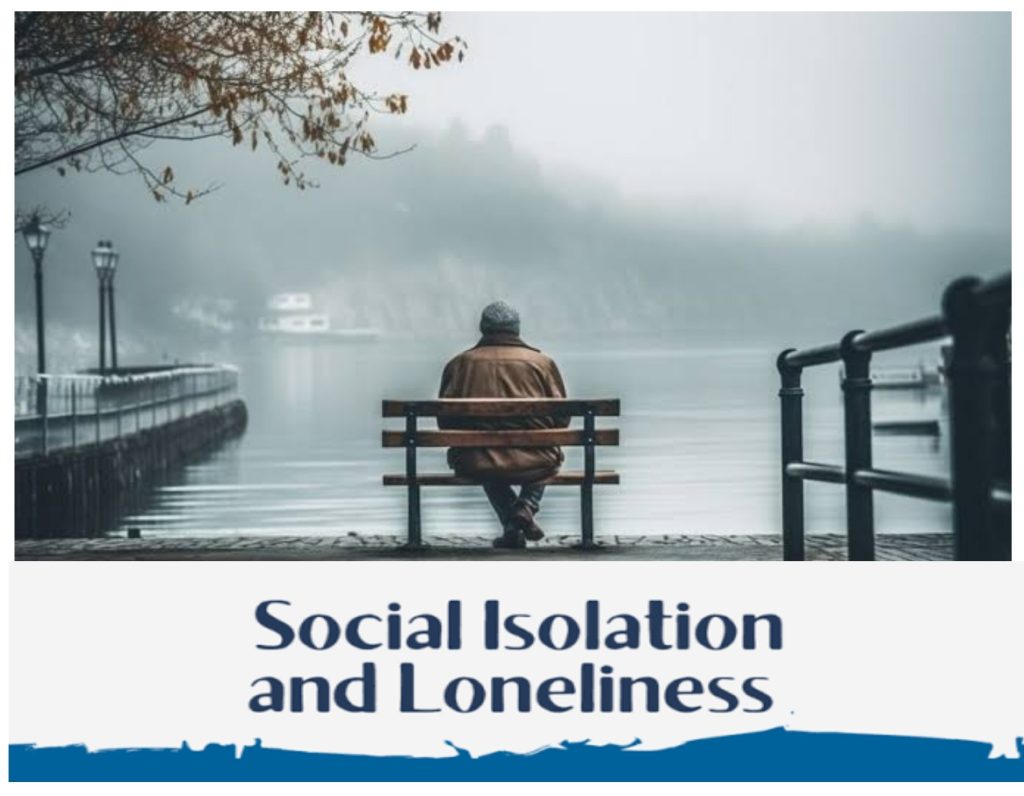Loneliness and Social Isolation: Emerging Public Health Crisis and Strategies for Prevention

Loneliness and social isolation have become increasingly recognized as significant public health issues in recent years. Numerous studies and research conducted by international health organizations have shed light on the detrimental effects these conditions can have on physical and mental health.
Loneliness is defined as a subjective feeling of being socially disconnected, lacking meaningful social relationships or companionship. Social isolation, on the other hand, refers to the objective state of having little or no social contact or interaction with others. While loneliness and social isolation are related, they are distinct concepts, and individuals can experience one without the other.
Impact of Loneliness and Social Isolation on Health and Well-being
The impact of loneliness and social isolation on health is a very serious issues. Numerous studies have shown that these factors can increase the risk of developing a wide range of both physical and mental health conditions. Individuals who experience chronic loneliness or social isolation are at a higher risk of developing cardiovascular diseases, such as hypertension, heart disease, and stroke. They may also have compromised immune systems, leading to higher susceptibility to infections and slower recovery times.
Furthermore, loneliness and social isolation have been linked to an increased risk of mental health disorders such as;
- Depression,
- Anxiety, and
- Cognitive decline
The above mentioned conditions are commonly associated with these conditions. Loneliness has also been found to contribute to suicidal ideation and higher rates of self-harm.
Roles of International Health Agencies, in managing the issues of Loneliness and social Isolation
International health organizations have recognized the significance of loneliness and social isolation as public health issues and have conducted extensive research to understand the causes, consequences, and potential interventions.
The World Health Organization (WHO) has highlighted the importance of social connections and inclusion in their Global Strategy on Mental Health. They emphasize the need for interventions and policies that promote social cohesion, community engagement, and supportive environments to prevent and address loneliness and social isolation.
The Center for Disease Control and Prevention (CDC) in the United States has also identified loneliness as a public health issue. They have conducted studies that link loneliness to a variety of health problems, including high blood pressure, heart disease, obesity, and mental health disorders. The CDC emphasizes the need for public health programs and interventions that focus on building social connections, increasing social support, and reducing social isolation.
The Campaign to End Loneliness, a UK-based organization, has conducted research on the health impacts of loneliness and social isolation in older adults. Their findings indicate that loneliness can accelerate cognitive decline, increase the risk of developing dementia, and lead to a decline in overall physical health. They advocate for policy changes and community-based interventions that foster social connections for older individuals.
Read Also
Interventions and Initiatives to combact the effects of Loneliness and Social Isolation
In terms of interventions, various approaches have been identified as potentially effective in addressing loneliness and social isolation.
- Social prescribing: This approach involves healthcare professionals referring individuals to community-based activities and services that can help connect them with others and improve their social well-being. These activities can range from joining social clubs and community groups to participating in exercise classes or volunteering.
- Technology and social media: While excessive use of technology and social media can contribute to feelings of isolation, when used appropriately, they can also be a tool to foster connections. Online support groups, virtual communities, and messaging platforms can help individuals combat loneliness and stay connected with others, especially in situations where physical interaction is limited.
- Community-based programs: Developing community-based initiatives that provide opportunities for social engagement, such as group activities, hobby clubs, and support groups, can help combat loneliness and create a sense of belonging.
- Education and awareness: Raising awareness about the impact of loneliness and social isolation on health is crucial in combating these issues. Education campaigns targeting both the public and healthcare professionals can help reduce stigma, promote early detection, and encourage intervention.

The recognition of loneliness and social isolation as public health issues by international organizations highlights the need for continued research, intervention development, and policy changes to address these challenges. By implementing comprehensive strategies that tackle the root causes of loneliness and social isolation, promote social connections, and create supportive environments, it is possible to improve the health and well-being of individuals and communities.
It is important for individuals to be aware of the potential impact of loneliness and social isolation on their health and take steps to prioritize social connections. This can include reaching out to loved ones, joining social groups or clubs, volunteering, and seeking professional help when needed.
The recognition of loneliness and social isolation as public health issues has sparked a call for action. Governments, healthcare systems, community organizations, and individuals all play a crucial role in addressing these issues and creating a society that values and promotes social connections and inclusion. By working together, we can reduce loneliness, improve mental and physical health outcomes, and create healthier and happier communities.